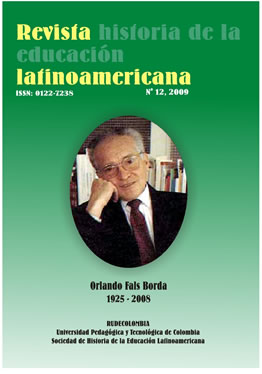SOCIAL SCIENCES AND THE THIRD WORLD INVENSION: A PURPOSE OF ORLANDO FALS BORDA’ S ACADEMIC WORK (I)

Abstract
Life and work of Orlando Fals Borda presents him as one of the most important author of Social Sciences of Latin America. This article pretends to highlight some of the aspects of his intellectual life as founder of the first Faculty of Sociology in Colombia (1959) and as coauthor of the first empirical research on violence in Colombia (1962-1963). They attribute to him the design and creation of the most extensive social net of participation in Colombia, the Juntas de Acción Communal. He is recognized as one of the greatest systematizer and populariser of the Participatory Action-Research (Investigación Acción Partiipativa). As author of many books and researches he inscribed himself in the “intellectual” category, been recognized by sociologist, anthropologist and historians as one of them. We propose a periodization of his intellectual work in five major stages. (1) The theoretical foundation, from 1953 to 1964. (2) The breaking-off with the positivist paradigm, from 1964 to 1968. (3) From the transformer consciousness to the revolutionary commitment, from 1968 to 1978. (4) The Participatory Action-Research (IAP, because its abbreviation in Spanish) and science for change and emancipation of the investigated person, from 1978 to 1991. (5) The democratic revolution and the reordering of the Colombian nation from 1991 until his death in2008. In this paper we are going to provide a tentative vision of the first two stages.
Keywords
Latin American Sociology, Social Science & Innovation, Communal Action, Participatory Action Research (PAR), Orlando Fals Borda, Sociology-Commitment, Liberation Sociology, Third World.